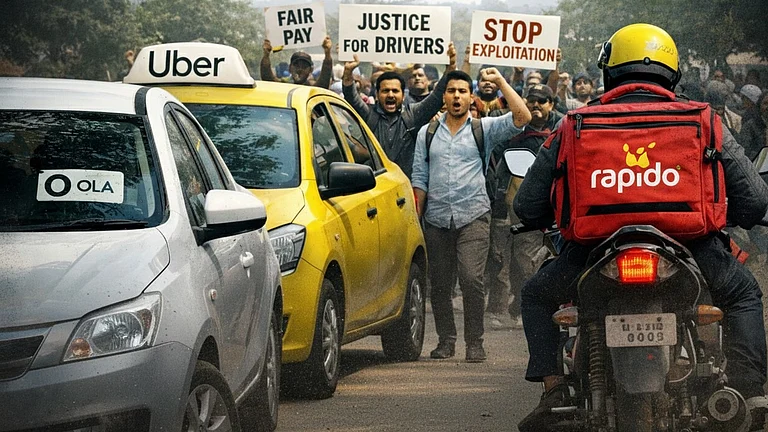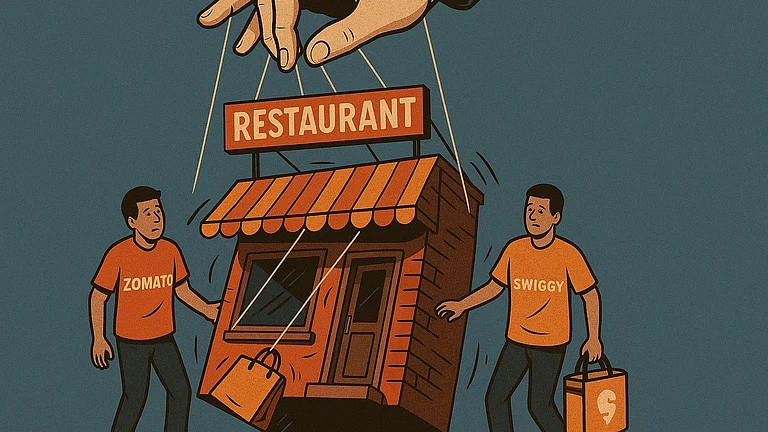Boeing factory workers voted Wednesday to reject the company's latest contract offer and to continue a six-week strike that has halted production of the aerospace giant's bestselling jetliners.
Local union leaders in Seattle said 64% of members of the International Association of Machinists and Aerospace Workers who cast ballots voted against accepting the proposal.
“After 10 years of sacrifices, we still have ground to make up, and we're hopeful to do so by resuming negotiations promptly,” Jon Holden, the head of the IAM District 751 union, said in a statement Wednesday evening. “This is workplace democracy — and also clear evidence that there are consequences when a company mistreats its workers year after year."
The labor standoff comes during an already challenging year for Boeing, which became the focus of multiple federal investigations after a door panel blew off a 737 Max plane during an Alaska Airlines flight in January.
The strike has deprived the company of much-needed cash that it gets from delivering new planes to airlines. On Wednesday, the company reported a third-quarter loss of more than $6 billion.
Union machinists assemble the 737 Max, Boeing's best-selling airliner, along with the 777 or “triple-seven” jet and the 767 cargo plane at factories in Renton and Everett, Washington.
The offer rejected Wednesday included pay raises of 35% over four years. The version that union members rejected when they voted to strike last month featured a 25% increase over four years.
The union, which initially demanded 40% pay boosts over three years, said the annual raises in the revised offer would total 39.8%, when compounded.
Boeing workers told Associated Press reporters that a sticking point was the company's refusal to restore a traditional pension plan that was frozen a decade ago.
“The pension should have been the top priority. We all said that was our top priority, along with wage,” Larry Best, a customer-quality coordinator with 38 years at Boeing, said on a picket line outside a Boeing factory in Everett, Washington. “Now is the prime opportunity in a prime time to get our pension back, and we all need to stay out and dig our heels in.”
Theresa Pound, a 16-year Boeing veteran, also voted against the deal. She said the health plan has gotten worse, with higher premiums and more out-of-pocket expenses, and her expected pension benefits would not be enough, even when combined with a 401(k) retirement account.
“I have put more time in this place than I was ever required to. I have literally blood, sweat and tears from working at this company,” the 37-year-old said. “I'm looking at working until I'm 70 because I have this possibility that I might not get to retire based on what's happening in the market.”
Boeing CEO Kelly Ortberg told staff in a memo this month that about 10% of the company's worldwide workforce of 170,000 would be laid off in coming months if the strike did not end.
He said the company also would further delay the rollout of a new plane, the 777X, to 2026 instead of 2025, and would stop building the cargo version of its 767 jet in 2027 after finishing current orders.
Before the third-quarter results were announced Wednesday, Boeing had reporting losing more than $25 billion since the start of 2019.
Boeing has said that average annual pay for machinists is currently $75,608.
Early in the strike, Boeing made what it termed its “best and final” offer. The proposal included pay raises of 30% over four years, and angered union leaders because the company announced it to the striking workers through the media and set a short ratification deadline.
Boeing backed down and gave the union more time. However, many workers maintained the offer still wasn't good enough. The company withdrew the proposed contract on Oct. 9 after negotiations broke down, and the two sides announced the latest proposal on Saturday.
The last Boeing strike, in 2008, lasted eight weeks and cost the company about $100 million daily in deferred revenue. A 1995 strike lasted 10 weeks. (AP)































